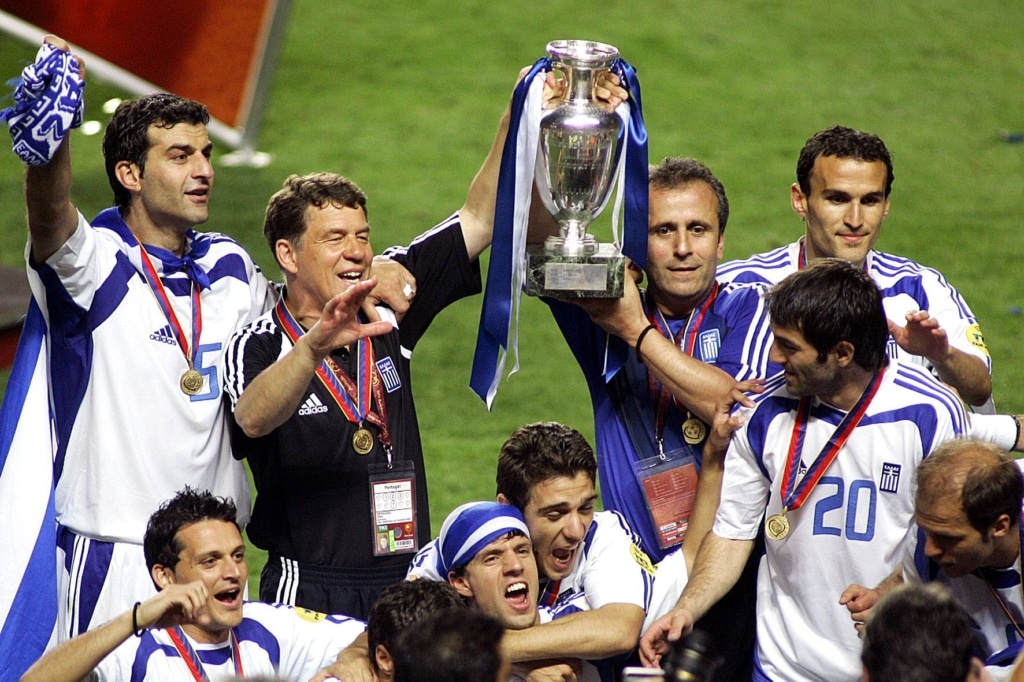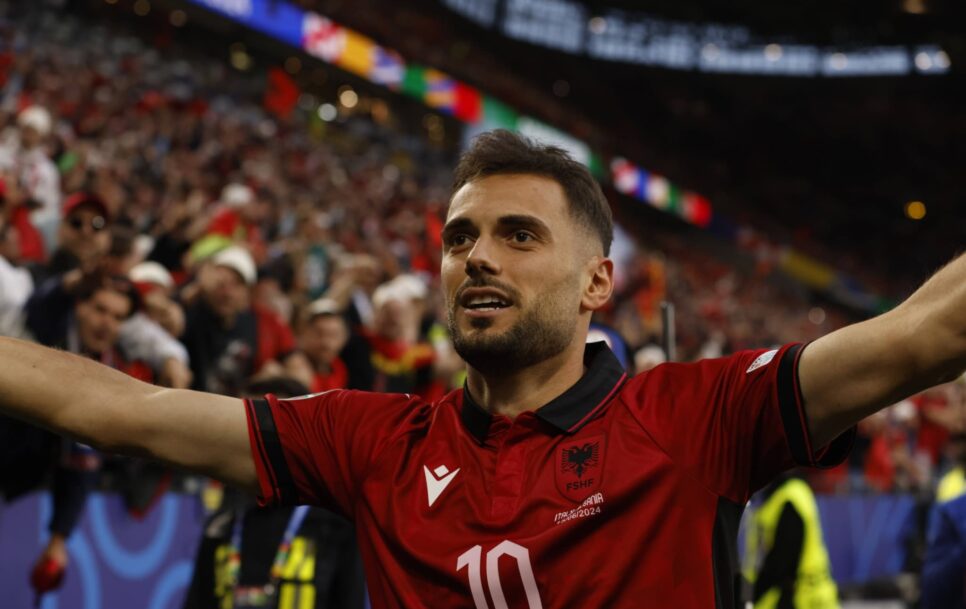Fallen Euros record that could have denied us football’s greatest miracle
The fastest goal in the UEFA European Championship now belongs to Nedim Bajrami, who netted against Italy in just 23 seconds this year. Before the Albanian’s feat, the record was held by Dmitri Kirichenko, who in 2004 threatened to end the run of eventual shock winners Greece early.
Before the final round of Group A matches, host Portugal, Greece, and Spain were all vying for two quarterfinal spots. Greece and Spain held the upper hand with four points each, meaning Portugal had to defeat Spain to advance to the last eight.
For Greece, a win or draw against Russia would have sufficed, but even a loss wouldn’t have necessarily meant elimination due to the numerous variables in play, making the situation rather complex.
Although Russia was already knocked out of the tournament, they didn’t want to leave the Euros without a win. They doused Greece’s hopes just 67 seconds after kickoff. Coach Georgi Yartsev – who had notably expelled captain and star player Aleksandr Mostovoi after the opening game against Spain for public criticism against him – benched Kirichenko against Portugal and Spain but placed him in the starting lineup against Greece, where the forward rewarded this trust.
Greece’s midfielder Kostas Katsouranis failed to clear the ball under Kirichenko’s pressure near his penalty area. The striker seized the ball, surged into the box, and scored with a toe-poke past Antonios Nikopolidis. It was only his fifth international match, but already his second goal – he had netted his debut goal against Norway a few months earlier.
Just as Bajrami smashed Kirichenko’s record this year, the Russian shattered the previous record in 2004. Before Kirichenko, the fastest goal in the Euros was held by Belarusian Sergei Aleinikov, who scored in 127 seconds against England in 1988, leading the Soviet Union to a 3-1 victory and securing a semifinal spot.
Interestingly, before the Euros, betting operators allowed wagers on whether Kirichenko’s record would be broken this year. Some offered odds of 3.00, indicating that the record was surprisingly likely to fall.
The probability was surely influenced by the last two Euros, where several players came close to dethroning the Russian. Three years ago, Swede Emil Forsberg scored in 82 seconds, and Dane Yussuf Poulsen in 99 seconds. Eight years ago, Poland’s Robert Lewandowski scored 100 seconds after kickoff.
Kirichenko couldn’t topple Greece
But let’s turn our attention back to the match between Greece and Russia. While the early setback for Greece wasn’t disastrous, their situation worsened in the 17th minute when Dmitri Bulykin made it 2-0. Although Zisis Vryzas pulled one back before halftime, Spain held all the cards for quarterfinal qualification.
The first half of the Iberian Peninsula derby ended goalless, suiting both Spain and Greece but not Portugal. The hosts finally broke through in the 57th minute thanks to Nuno Gomes, making Portugal the group leaders and Greece second. Despite being tied on points with Spain, Greece had scored more goals in the tournament, giving them the edge due to equality on points and the first two tiebreakers – head-to-head match and goal difference.
Though no more goals were scored in the Portugal vs. Spain match, the Greece vs. Russia clash was nerve-wracking. Late in the game, Kirichenko had a golden chance to score his second but couldn’t poke in Alexei Bugayev’s teasing cross.
Greek defender Traianos Dellas later recalled that although Kirichenko’s chance lasted only a second or two, it was one of the toughest moments of his career. Had Russia gone up 3-1, Greece would have needed a goal, as Spain would have advanced to the quarterfinals thanks to a superior goal difference.
However, fortune smiled on Greece, and the rest is history. They beat Czechia, France, and Portugal 1-0 in succession in the knockout stages, leading Otto Rehhagel’s squad to a stunning title.

Without a doubt, Greece’s triumph 20 years ago is the greatest miracle in Euros history. It’s often compared to Denmark’s 1992 title, but unlike the Scandinavians, Rehhagel’s team had no stars, just a group of warriors who perfectly executed their coach’s game plan and didn’t worry about being criticized for their defensive style.







